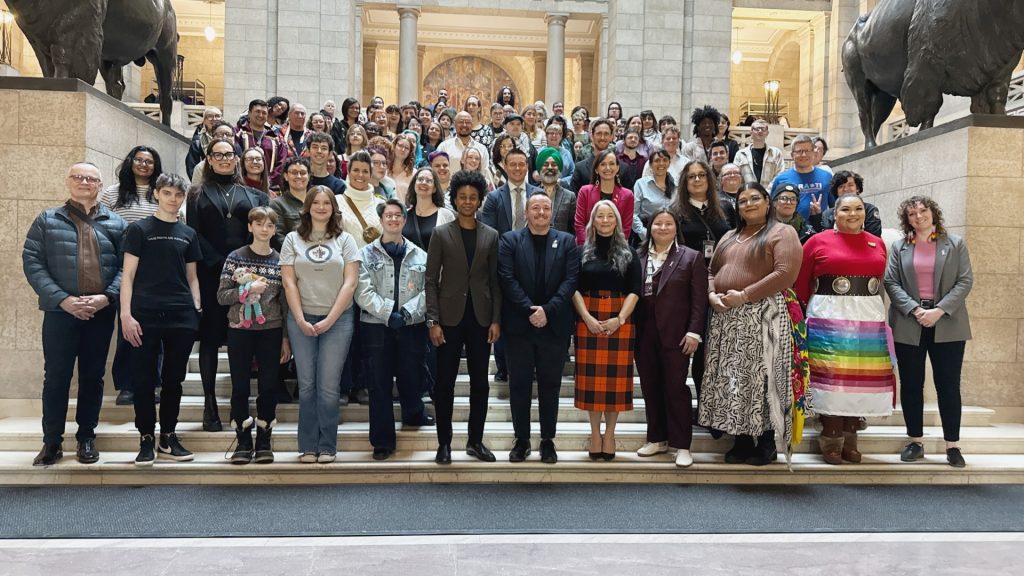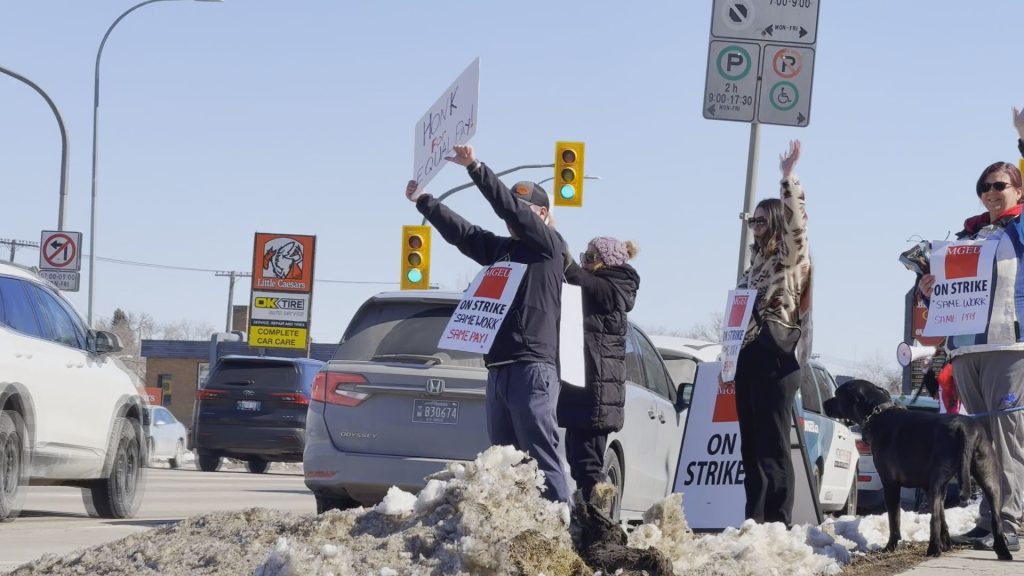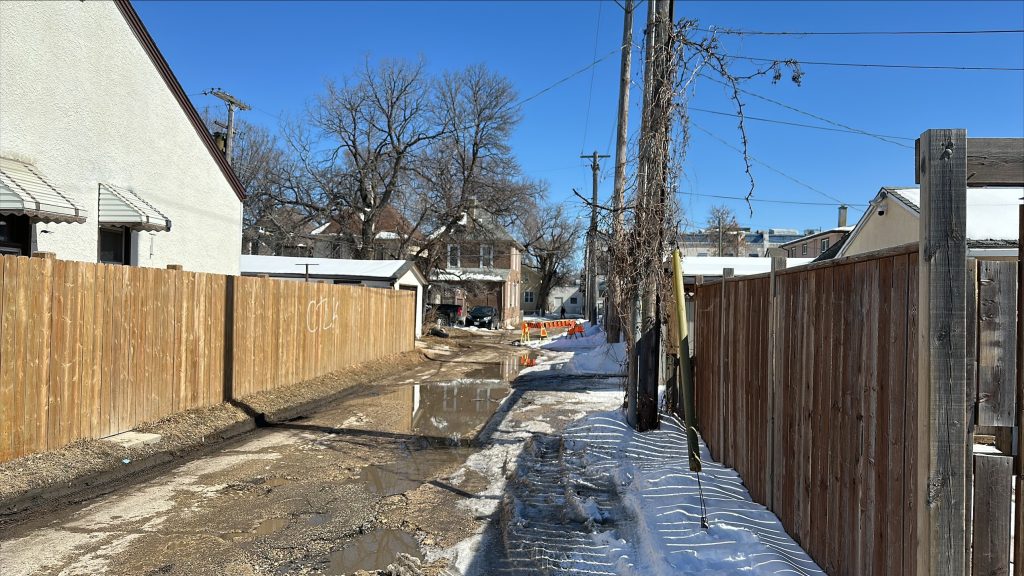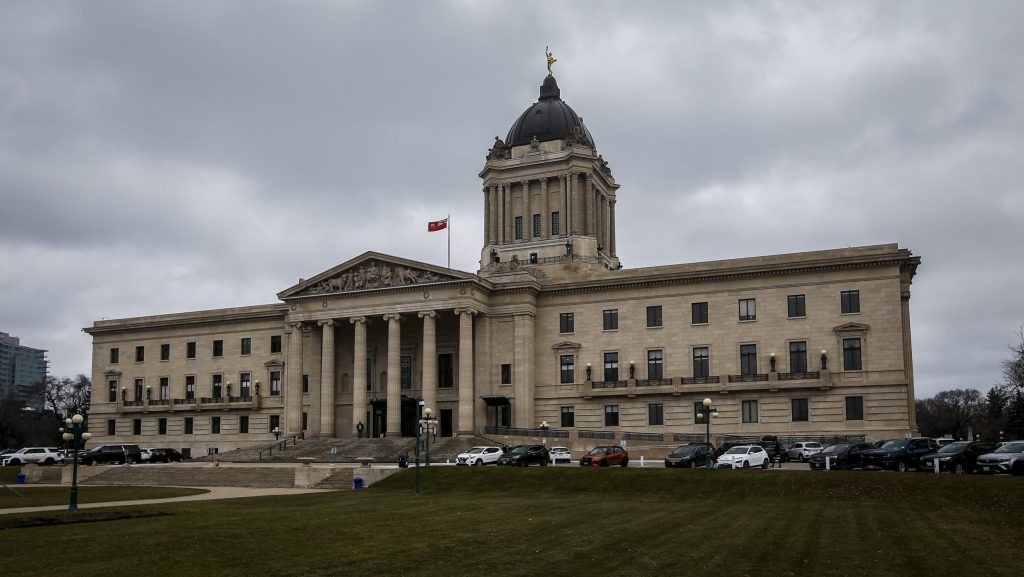Dozens take to the streets of Winnipeg, demanding an end to racism within the health-care system

Posted February 26, 2025 12:15 pm.
Last Updated February 27, 2025 9:10 am.
Concerns and calls for change around harm caused by racism in Manitoba’s healthcare system could be heard outside the Manitoba Legislature this week.
That’s as dozens of Winnipeggers and First Nation members gathered on the Leg. steps following a march through the streets of Winnipeg.
Making their voices heard, they’re demanding an end to racism within the healthcare system and are sounding the alarm over the urgent need for equitable and culturally safe healthcare for First nation communities in Manitoba.
“What I was told changed my life forever,” said Justin Flett, recalling his own harrowing experience.
He says he experienced problematic, dangerous behaviour while inside a hospital in The Pas, Man. sparking the rally on Tuesday. Flett claims he was told by an emergency physician that his abdominal pain was a “hangover” when it was actually something much more serious.
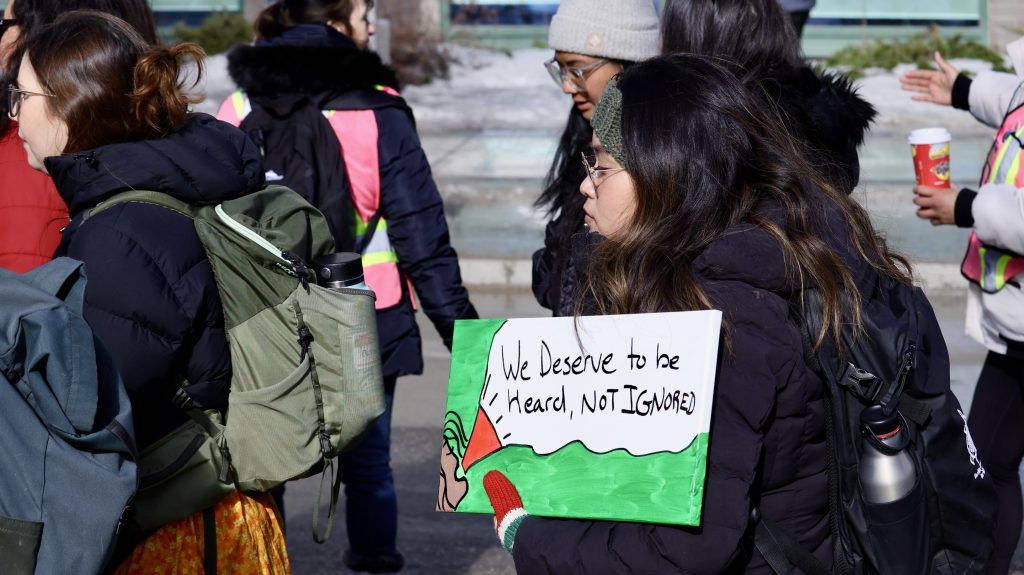
He says a few days later, the pain quickly turned into a life-threatening ordeal and he had to travel more than 11 hours by bus to Winnipeg for treatment. It was then he was diagnosed with appendicitis and he says the dangerous infection has left him with life altering issues.
“I was lying on the floor and people were walking around me like I was an animal,” he said, anger in his voice. “Like I was a dog.”
Flett is now suing the Northern Regional Health Authority and Winnipeg Regional Health Authority, speaking publicly for the first time at the rally, saying a unified front is needed to address the issue.
“We all come together, stand together, fight as one, and that’s how we’re going to make change and there needs to be changes made now,” he said.
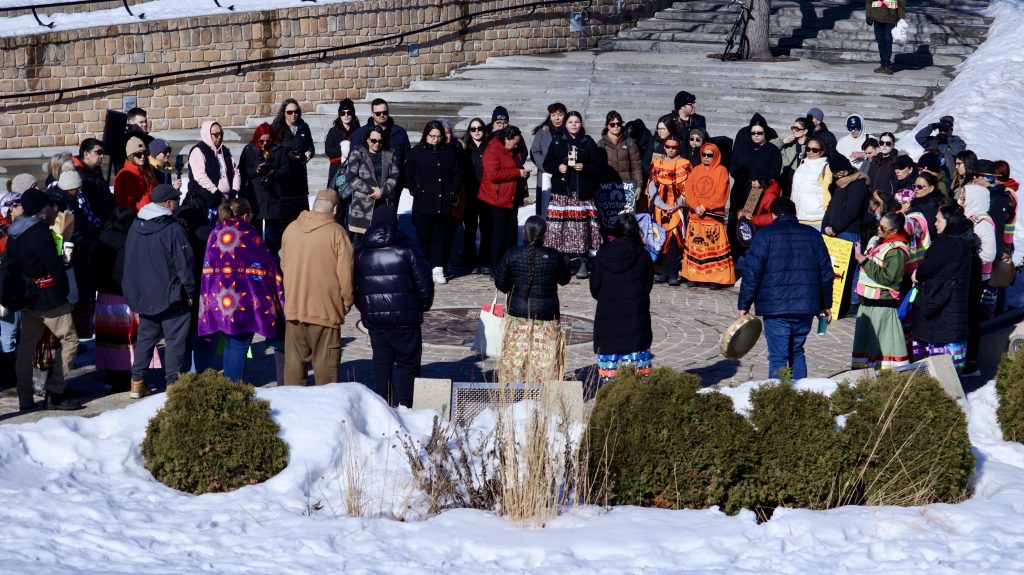
The incident has Indigenous leadership in Manitoba furious, as Kyra Wilson Grand Chief, called it unacceptable and Chief of the Dauphin River First Nation Lawrence Letander saying the incident highlights larger gaps in healthcare in the province’s North.
Dr. Barry Lavallee, the CEO of the Manitoba Keewatinowi Okimakanak Inc., and a medical doctor by trade, says Flett is far from alone in his experience, as he regularly hears of things being missed and misdiagnosed.
“The system continues to deny care to access resulting in lost knees, heart attacks untreated, death on the street and misdiagnosis of a classic, classic diagnosis of appendicitis,” he said.
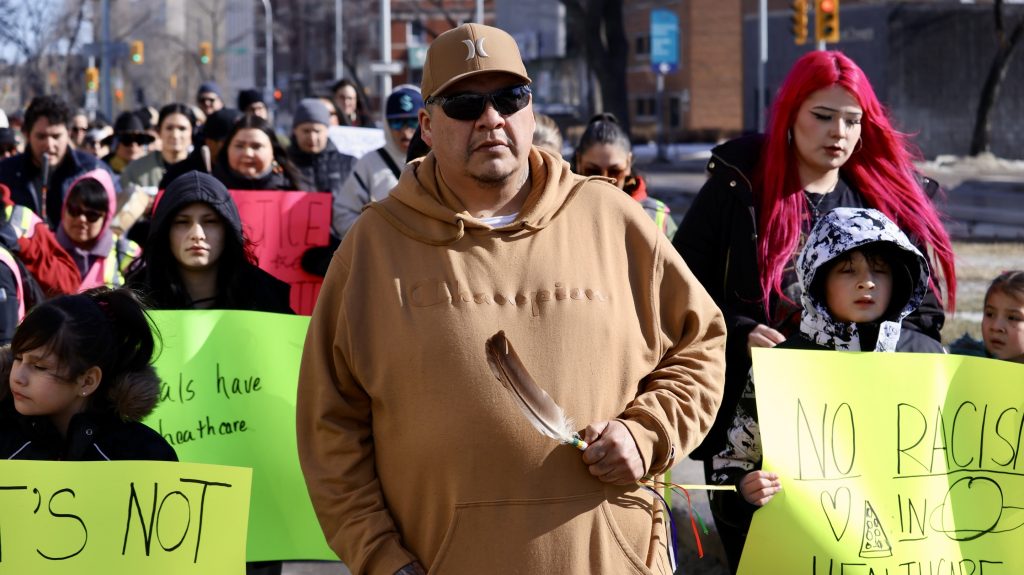
Following the rally on Tuesday Manitoba Minister of Health Seniors and Long-Term Care Uzoma Asagwara agreed that what Flett went through was “unacceptable.”
They met with Flett face-to-face Monday to hear his experience to better understand what happens on the front line and to take action.
“We’ve made sure that by listening to MKO, working with First Nation leadership, working with healthcare organizations like KIM,” said the Minister.
“That we have greater representation on boards like the Northern Regional Health Authority that have increased indigenous representation – and expertise – that can help inform how we make sure healthcare is safe, for not only Indigenous patients, but all patients in the healthcare system.”
Some in attendance however say for Flett and patients like him, the damage has already been done.
“Lives are at risk,” said Willie Moore, Regional Chief for the Assembly of First Nations. “Justin was able to provide for his family, he can no longer do that due to his medical condition.”
“They say Friendly Manitoba?” he asked the rally. “I don’t think so when people are dying.”
